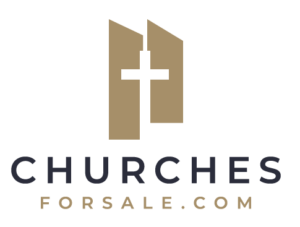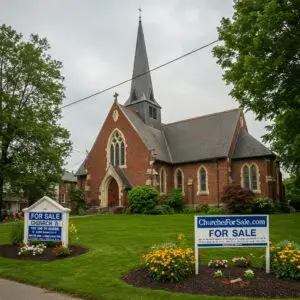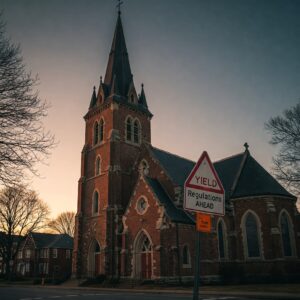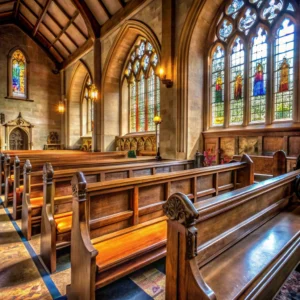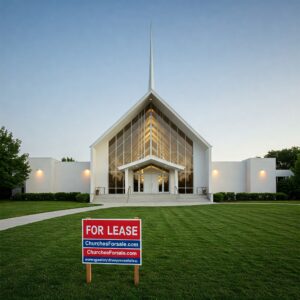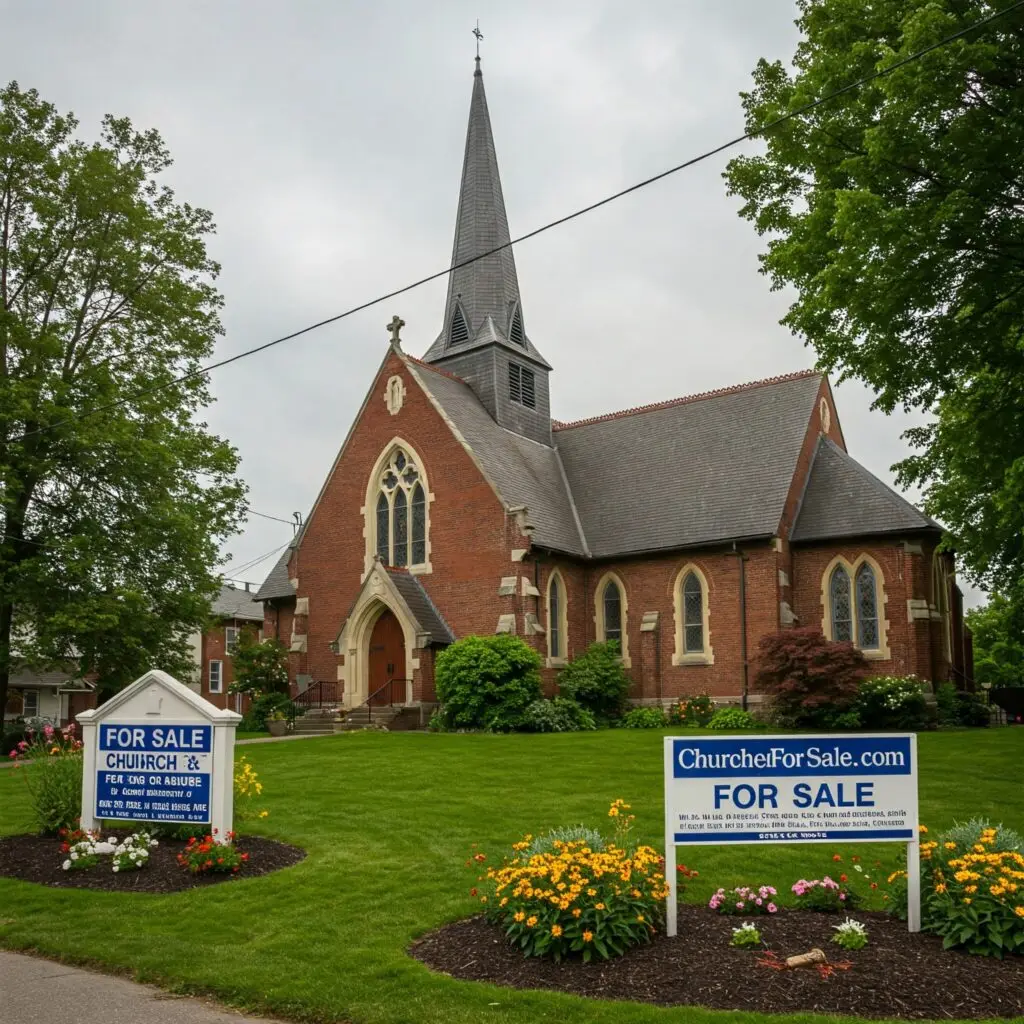
Top 8 Things to Know When Buying a Church Property
Buying a church property is a unique process, filled with both exciting possibilities and important considerations. Whether you’re a congregation seeking a new home, a nonprofit looking for a community space, or an investor interested in adaptive reuse, churches for sale offer opportunities unlike any other type of real estate. However, these properties come with their own set of challenges, from zoning and financing to historical significance and community impact.
Unlike standard commercial or residential properties, church buildings often hold deep emotional and historical value for their communities. This means buyers must approach the process with sensitivity and a willingness to navigate regulations that protect these special spaces. At the same time, the practical aspects—such as budgeting, inspections, and legal requirements—are just as critical to a successful purchase.
This article breaks down the top 8 things you need to know when considering churches for sale. By understanding these key points, you’ll be better equipped to find the right property, avoid common pitfalls, and make a purchase that serves your mission and community for years to come.
1. Set a Realistic Budget
Stewardship. The first step in buying a church property is understanding your budget. Churches for sale can vary widely in price depending on factors like location, size, and condition. Before you start your search, determine how much your organization can afford—not just for the purchase price, but also for ongoing maintenance, renovations, and utilities. There are many churches who only consider the direct costs, but there is on going costs (just like owning a home) to owning a church property.
Consider how much you’ve already raised, how much more you can realistically fundraise, and whether you’ll need a loan. Remember, church properties typically require commercial loans, which have different terms and down payment requirements than residential mortgages. Factor in all costs to avoid surprises down the road. We often get asked if it is ok for churches to borrow money to buy a church property. This is not an easy question, and it is something each congregation needs to wrestle with. Some churches decide that they can steward financing well, and some feel it is a violation of their calling as a church to have a lender. You will need decide what the best stewardship decision is for your church.
A clear budget will help you narrow your search and focus on properties that are financially feasible for your group. This preparation will also make you a more attractive buyer when it’s time to make an offer.
Churches for Sale Group has many tools available when it comes to figuring out church budgets, financing options, etc. Please email Nate@ChurchesForSale.com if you want to talk through options, or jump into one of our coaching or consulting options as you church walks this road.
2. Understand Zoning and Jurisdiction
Zoning laws are critical when evaluating churches for sale. Not every property is automatically approved for religious use, and local zoning codes may restrict what you can do with the building. Before making an offer, check with local authorities to ensure the property is zoned for your intended use.
If the property isn’t already zoned for religious or institutional purposes, you may need to apply for rezoning or a special use permit. This process can be time-consuming and may require public hearings or community input. Understanding the jurisdiction’s regulations—such as parking, landscaping, and building height—will help you avoid costly mistakes later.
Engage early with local planning departments and zoning boards. Building a positive relationship with these officials can streamline the process and help address any concerns before they become obstacles.
3. Evaluate the Property’s Physical Condition
Church buildings are often older and may have unique architectural features, but they can also come with hidden maintenance challenges. Before finalizing any purchase, conduct a thorough inspection of the property. Look for issues with the roof, foundation, plumbing, electrical systems, and HVAC. We always recommend that you consult with and hire a certified inspector during the inspection period of your purchase contract. Any purchase contract should include a timeframe that you are comfortable with to inspect all major aspects of the building(s).
Check for code compliance, especially if you plan to renovate or change the use of the building. Bringing an old church up to current standards—such as ADA accessibility or fire safety—can be expensive. If you’re considering significant renovations, be prepared for costs that may exceed your initial estimates. Please remember that once you start you must follow all city/local codes, and are likely going to be subject to inspections. It is best to do things the right way from the beginning in order to avoid major complications later. We have walk with a number of churches through the years, that decided to have someone from the church complete the work, and then down the road the city found out and it cost them a ton of money to bring it up to official code. Always check with local authorities, and local/city fire codes to get all requirements before starting any work.
A professional property inspector with experience in large or institutional buildings can help you uncover potential problems and avoid unpleasant surprises after closing.
Pay close attention to the building’s foundation, roof, plumbing, electrical systems, and HVAC. Look for signs of water damage, mold, asbestos, or other potential hazards. A comprehensive inspection will help you understand the scope of repairs or renovations needed and accurately estimate the property’s overall condition.
4. Consider Parking and Accessibility
Adequate parking is often a challenge with churches for sale, especially older buildings located in established neighborhoods. Many cities require a minimum number of parking spaces for assembly use, and lack of parking can limit your congregation’s growth or the building’s potential for other uses. Be sure you are aware of what your local municipalities will require from you for number of parking spots before you decide to use a facility as a church. It is often tied to the seating capacity of the church.
Assess the property’s current parking situation and any requirements imposed by local regulations. Also, consider accessibility for people with disabilities—ramps, elevators, and accessible restrooms may need to be added or updated to meet modern standards.
If the property falls short, explore options for shared parking agreements with nearby organizations or potential for expanding parking on-site. We have worked a number of churches to negotiate shared parking agreements with local businesses in the surrounding area.
5. Secure the Right Financing
Financing a church property is different from buying a home. Most churches for sale require commercial loans, which typically have shorter terms, higher interest rates, and larger down payments than residential mortgages. Traditional 30-year fixed-rate loans are usually not available for these types of properties. We have worked a number of lenders that will be more favorable. Please email Nate@churchesforsale.com to schedule a coaching session for your church to better understand your churches options.
Work with lenders who have experience in church or nonprofit financing. They can guide you through requirements such as financial statements, fundraising history, and projected income. Be prepared for a more rigorous approval process and ensure your financial plan is realistic and well-documented.
Securing financing early in the process will make you a stronger buyer and help prevent delays once you find the right property.
6. Assemble a Knowledgeable Team
Buying a church property involves many moving parts, so it’s important to have the right team in place. You may need a commercial real estate broker experienced with churches for sale, a real estate attorney familiar with zoning and religious property transactions, and a commercial property inspector. Please be sure they are familiar with church properties. If you need a recommendation for someone in your area please contact Nate@ChurchesForsale.com
Depending on your plans, you may also need an architect or contractor with experience in church renovations or adaptive reuse. These professionals can help you evaluate the property’s potential, estimate renovation costs, and navigate regulatory requirements.
A strong team will help you avoid common pitfalls, negotiate better terms, and ensure your purchase aligns with your goals and mission.
7. Assess Community Impact and Historical Significance
Churches are often central to their communities and may have historical or cultural significance. Before purchasing, consider how your plans for the property will affect the neighborhood and whether there are any historical designations or restrictions that could limit renovations or changes.
Engage with local stakeholders and community members early in the process. Their support can be essential for obtaining permits or approvals, especially if you plan to change the property’s use or appearance. Understanding the property’s history and role in the community will help you make informed decisions and foster goodwill.
If the building is historically significant, be prepared for additional regulations and potential renovation costs to preserve its character.
8. Plan for Future Growth and Flexibility
When evaluating churches for sale, think beyond your immediate needs. Consider whether the property can accommodate future growth, new ministries, or changes in your congregation’s size and activities. Look for flexible spaces that can be adapted as your needs evolve.
Evaluate the surrounding area for demographic trends, accessibility, and potential for expansion. A property that meets your needs today but can’t grow with you may limit your organization’s long-term success.
Planning for the future ensures your investment remains valuable and supports your mission for years to come.
Conclusion
Buying a church property is a complex but rewarding process. By understanding the unique factors involved—such as zoning, financing, inspections, and community impact—you can make informed decisions and avoid costly mistakes. Churches for sale offer opportunities to create vibrant community spaces, preserve historic buildings, and support your organization’s mission.
Remember, assembling the right team of professionals is crucial to navigating the complexities of church real estate. Take the time to research, plan, and engage with local stakeholders to ensure your purchase is a positive experience for both your group and the surrounding community.
At ChurchesForsale.com, our goal is to make church real estate simple. Whether you’re searching for your next sanctuary, a community center, or a unique investment, understanding these top 8 things will help you find the perfect property and set the stage for future success. Your journey to a new church home starts with knowledge and preparation—let us help guide you every step of the way.
